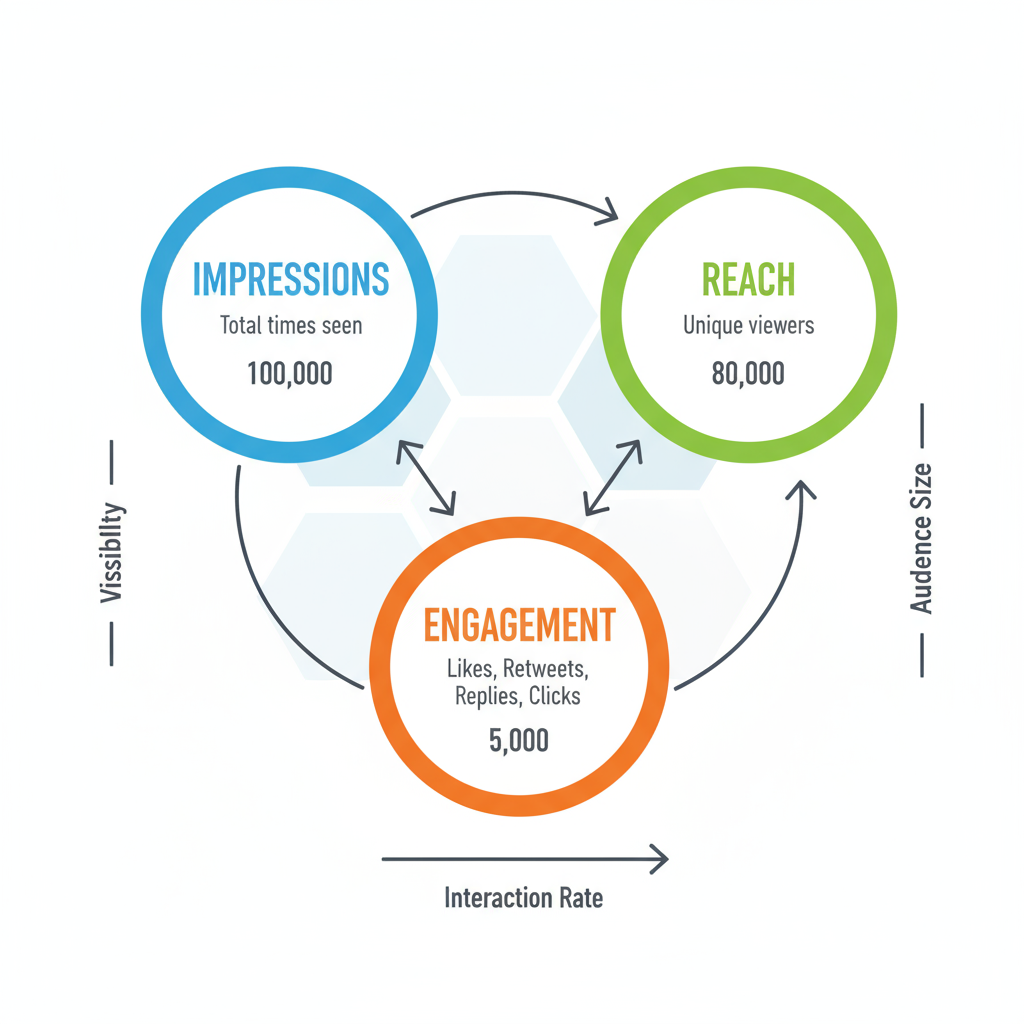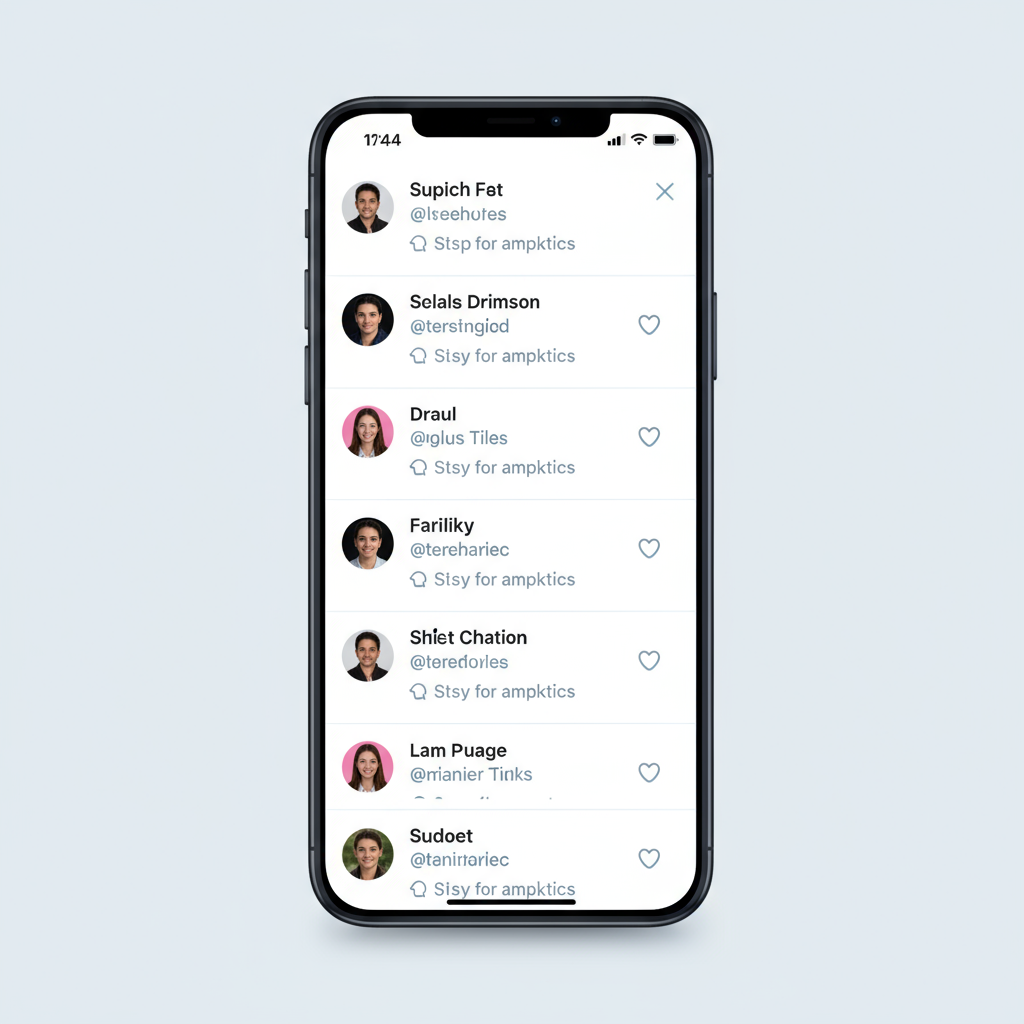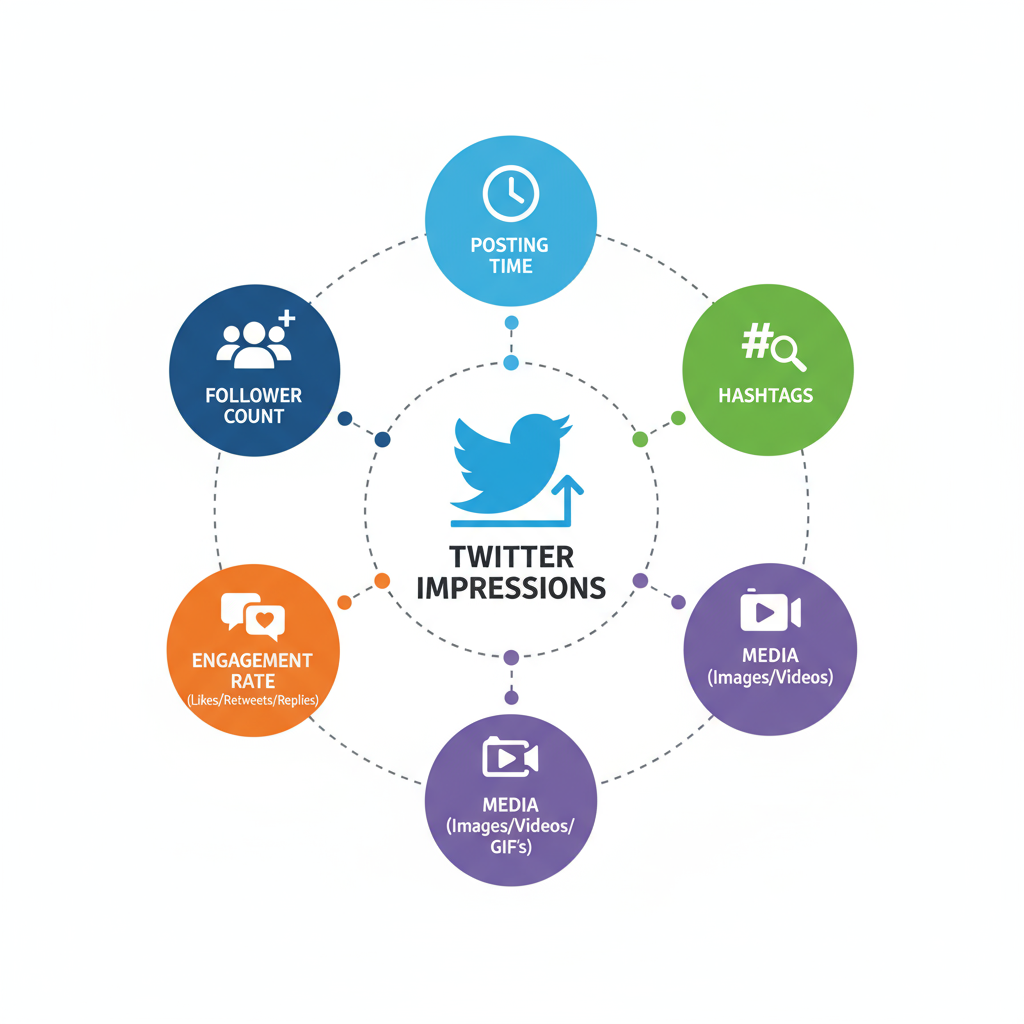Twitter Impressions Meaning and How to Increase Them
Learn what Twitter impressions mean, how they differ from reach and engagement, and discover actionable strategies to boost your tweet visibility.

Understanding Twitter Impressions and How to Boost Them
If you’ve ever explored Twitter Analytics and wondered “On Twitter, what does impressions mean?”, you’re not alone. Twitter impressions are a key performance metric that show how many times your tweets are displayed to users, whether they interact with them or not. Understanding impressions — and how to improve them — is crucial for increasing your visibility, building an engaged audience, and driving long-term growth on the platform.
In this comprehensive guide, we’ll explain what Twitter impressions are, how they’re calculated, how they differ from other metrics, and practical strategies to boost them organically.

---
What Are Twitter Impressions?
According to Twitter’s official definition, an impression is counted every time a Tweet shows up in someone’s timeline, appears in search results, or is visible in a conversation. This applies regardless of whether the tweet is clicked, liked, or otherwise interacted with — simply appearing on-screen is enough to count.
Quick Example
If you post a tweet and it appears in 300 different timelines (even if the same person sees it more than once), you’ve earned 300 impressions.
---
Impressions vs. Reach vs. Engagement
Many users confuse impressions, reach, and engagement. Here’s how they differ:
| Metric | Definition | Example |
|---|---|---|
| Impressions | Number of times a Tweet is displayed on screens | Your Tweet is shown on 500 timelines |
| Reach | Number of unique users who saw the Tweet | 350 unique users saw your Tweet (some more than once) |
| Engagement | Any interaction with the Tweet (clicks, likes, replies, retweets, shares, detail expands) | 40 people liked, clicked, or replied |
Key takeaway: Impressions measure visibility, reach measures unique visibility, and engagement measures interaction.
---
How Twitter Calculates Impressions
A tweet earns an impression when it:
- Appears in someone’s Home timeline
- Appears in search results
- Appears as part of a reply thread
- Appears as an embedded tweet on a website and loads successfully
Tip: Retweets and Quote Tweets from others can generate new impressions by displaying your content to different audiences.
---
Common Misconceptions About Twitter Impressions
Misunderstanding impressions can lead to flawed strategies.
- Myth #1: 1,000 impressions means 1,000 people read my tweet.
- Fact: Scrolling past without reading still counts.
- Myth #2: More impressions automatically mean more clicks.
- Fact: Impressions measure exposure, not engagement.
- Myth #3: Only liked or retweeted tweets get impressions.
- Fact: Simply showing on-screen counts as an impression.
---
How to View Impressions in Twitter Analytics
To locate impression data:
- Log into your Twitter account.
- Click your profile icon and select Analytics.
- Open the Tweets tab for per-tweet impression counts.
The Home tab also shows your total impressions over the past 28 days.

---
Factors That Influence Twitter Impressions
Several factors affect your impression count:
- Hashtags — Use relevant tags to appear in searches and on trend pages.
- Posting Time — Tweet during peak audience hours (which vary by niche).
- Trending Topics — Posting about trends can increase discoverability.
- Account Activity — Consistently active accounts often get prioritized in feeds.
- Media Attachments — Tweets with images, GIFs, or videos often outperform text-only posts.
---
Strategies to Increase Twitter Impressions
Impressions are vital for audience growth. Here’s how to build them organically:
1. Post Consistently
Maintain a steady posting schedule so you appear regularly in followers’ feeds.
2. Use Trending & Relevant Hashtags
Capitalize on topical trends but avoid spammy or unrelated tags.
3. Engage with Your Community
Replies and interactions with influencers or active users can expose you to new audiences.
4. Include Rich Media
Visuals stand out, capturing attention and boosting impressions.
5. Optimize Your Posting Times
Split-test posting at different hours to find your audience’s “sweet spot.”
---
High Impressions but Low Engagement?
If your impressions are high but clicks or interactions are lacking, it often means:
- Your content reached many but failed to resonate.
- Your tweet lacked a compelling call-to-action.
- The topic wasn’t relevant to the audience who saw it.
---
Case Study: Maximizing Impressions Through Content Style
Example:
- Tweet A: New blog post announcement with a link — 3,000 impressions, 50 engagements (1.6%).
- Tweet B: Humorous, relatable industry meme — 10,000 impressions, 500 engagements (5%).
Takeaway: Tweet B benefited from widespread sharing due to its relatable content, which in turn multiplied impressions.

---
Best Practices for Leveraging Impressions Data
- Track Trends Over Time — Monitor changes in impressions following different posting approaches.
- Correlate with Engagement Rate — Impressions alone don’t equal success; pair with action data.
- Test and Adapt — Experiment with content formats to learn what your audience favors.
- Use Scheduling and Analytics Tools — Services like TweetDeck, Buffer, and Hootsuite can assist in tracking and optimization.
---
Limitations of Impressions as a Metric
While impressions are insightful, they have caveats:
- They don’t indicate reading time or attention span.
- The same user can generate multiple impressions.
- High impressions don’t guarantee clicks, conversions, or sales.
The best approach is to use impressions alongside engagement rate, CTR, and conversion tracking.
---
Summary and Next Steps
Key points:
- Impressions measure visibility; engagement measures action.
- Post consistently, use relevant hashtags, and time your tweets strategically.
- Monitor impressions alongside other metrics for a fuller performance picture.
Final Thoughts:
The question “On Twitter, what does impressions mean?” is a stepping stone to mastering your analytics. By understanding how impressions work, tracking them diligently, and applying tested growth tactics, you can significantly expand your tweet visibility and connect with a larger, more engaged audience.
Start analyzing your Twitter impressions today and apply one of these strategies this week to see measurable improvement in your reach.


